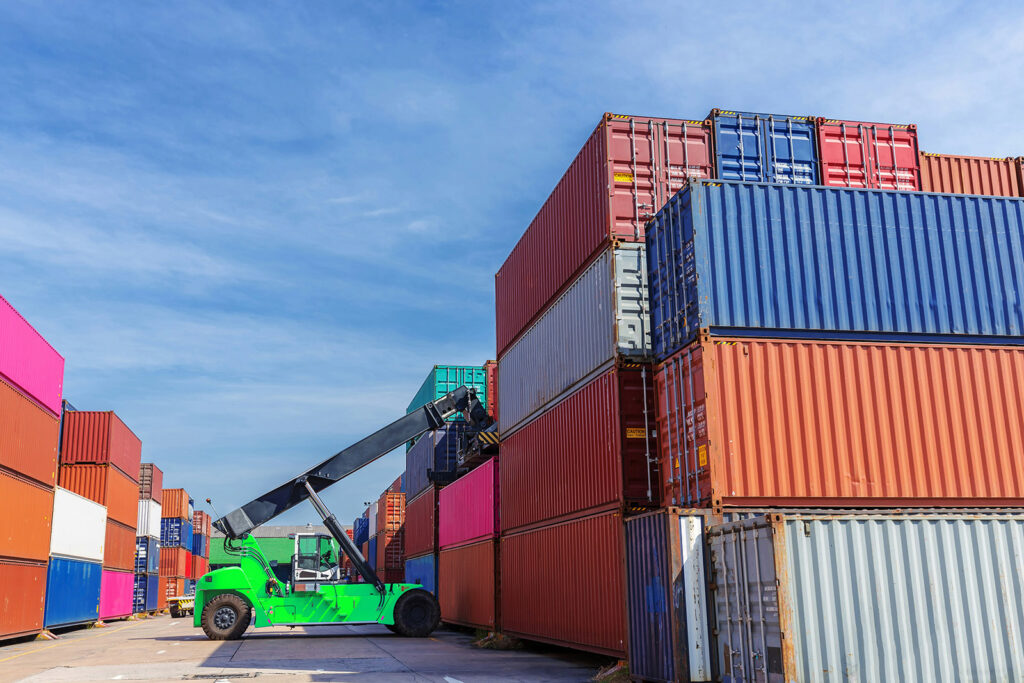In recent years, the demand for shipping containers has expanded beyond their traditional use in the transportation and logistics sectors. These versatile steel boxes are now being repurposed for a variety of innovative applications across the UK. Whether it’s eco-friendly housing, pop-up retail spaces or modular offices, the possibilities for shipping containers are seemingly endless.
The availability of shipping containers for sale has made it easier for businesses and individuals to transform these durable structures into cost-effective, sustainable solutions. This article explores the various innovative uses for shipping containers in the UK and how they are shaping modern living and business practices.

Eco-Friendly Housing Solutions
One of the most popular uses for shipping containers in the UK is for eco-friendly housing. As concerns about sustainability grow, many are turning to container homes as a more environmentally friendly option. Shipping containers offer a perfect base for construction, as they are made of sturdy, recycled steel and can be easily adapted into various configurations to meet housing needs. These homes require significantly fewer building materials and labour compared to traditional brick-and-mortar houses, making them both cost-effective and eco-friendly.
In fact, a study by the Ellen MacArthur Foundation showed that the construction industry accounts for around 40% of the world’s carbon emissions. By repurposing shipping containers, the UK can reduce its environmental impact while providing affordable housing solutions. Many developers are incorporating renewable energy sources, such as solar panels and rainwater harvesting systems, into container homes, further reducing their ecological footprint. This has been particularly relevant in urban areas where affordable housing is scarce, and container homes offer a viable alternative for both temporary and permanent accommodation.
Modular Offices and Workspaces
As remote and flexible working arrangements gain traction, businesses are seeking cost-effective and adaptable office spaces. Shipping containers have emerged as an ideal solution for creating modular offices and workspaces. These containers can be stacked, arranged, and modified to create unique office environments tailored to the specific needs of a business.
The UK, with its rapidly growing startup culture, is embracing the use of container-based offices, which are both mobile and scalable. Whether it’s a pop-up workspace in a bustling city centre or a more permanent office in an industrial area, shipping containers can be equipped with all the necessary amenities, including heating, air conditioning, and insulation. A report by Allied Market Research indicated that the modular construction market is expected to reach £157 billion by 2027, with shipping containers playing a significant role in this growth.
Furthermore, many companies are recognizing the sustainability benefits of using shipping containers for their office needs. By choosing containers over traditional building materials, businesses are contributing to the circular economy by reducing waste and reusing durable materials. Shipping containers for sale in the UK are becoming a go-to option for companies looking to reduce their environmental impact while staying flexible in their operations.
Retail Spaces and Pop-Up Shops
In the retail sector, shipping containers have proven to be an innovative way for businesses to engage with customers. Pop-up shops made from containers are fast becoming a trend in the UK, particularly in busy shopping districts and at festivals. Their portability allows retailers to set up shop in high-traffic areas with minimal overhead costs compared to leasing a traditional storefront.
The rise of experiential retail is driving the demand for flexible, creative spaces, and shipping containers fit the bill perfectly. According to a study by Deloitte, 63% of consumers are interested in brands that offer unique, memorable experiences. Pop-up shops provide an excellent platform for brands to create such experiences while testing new markets without committing to long-term leases. Retailers can quickly transform a container into a fully functional, branded store that can be easily relocated or expanded as needed.
Moreover, container-based retail spaces are highly customizable, with many businesses opting to incorporate elements like large glass windows, shelving, and bespoke interiors to match their brand identity. Shipping containers for sale are offering UK businesses a unique opportunity to engage with consumers in innovative ways, often drawing in curious foot traffic thanks to their eye-catching designs.
Sustainable Cafés and Restaurants
Shipping containers are also being utilised to create sustainable, cost-effective dining spaces in the UK. From quirky coffee shops to gourmet food halls, containers provide a modern, industrial aesthetic that appeals to customers looking for something different. These modular spaces are easy to modify, allowing café and restaurant owners to design kitchens, dining areas, and even rooftop terraces within a compact footprint.
With the UK’s food and beverage industry increasingly focused on sustainability, shipping containers offer an eco-friendly alternative to traditional restaurant construction. A survey by PwC found that 52% of consumers in the UK actively seek out businesses with strong environmental values. Shipping containers not only allow restaurateurs to reduce their carbon footprint by repurposing existing materials, but they also enable them to create energy-efficient spaces with solar panels, energy-saving appliances, and sustainable materials.
Shipping containers for sale in the UK are also highly affordable, allowing aspiring restaurateurs to enter the market with lower startup costs. This has made it easier for small business owners and independent chefs to launch pop-up restaurants and mobile eateries, further diversifying the UK’s culinary scene.
Disaster Relief and Emergency Shelters
Shipping containers are being increasingly used for disaster relief efforts and emergency shelters. Their durability, ease of transportation, and ability to be quickly converted into living spaces make them an excellent option for temporary housing in times of crisis. In the UK, where natural disasters such as flooding are becoming more frequent, shipping containers offer a practical solution for providing emergency accommodation to displaced individuals.
For example, in response to the flooding in parts of the UK, temporary housing made from shipping containers was set up to provide immediate shelter for affected families. These containers can be equipped with essential amenities, including beds, kitchens, and bathrooms, offering a safe and secure environment in the aftermath of disasters. According to the UK Environment Agency, the frequency of extreme weather events is likely to increase due to climate change, which underscores the importance of readily available emergency shelters like container housing.
Moreover, shipping containers have been employed by international aid organisations for similar purposes around the world, proving their effectiveness in a variety of contexts. The versatility of shipping containers for sale in the UK means they can be deployed quickly and efficiently, offering a practical solution to urgent housing needs in disaster situations.
Conclusion
Shipping containers have come a long way from their traditional role in the shipping industry, becoming a versatile and sustainable resource for innovative uses across the UK. From eco-friendly homes and modular offices to pop-up retail spaces and disaster relief shelters, the adaptability of these containers is unmatched. As sustainability becomes an increasingly important factor in construction and business operations, the repurposing of shipping containers is expected to grow even further. The UK is at the forefront of this shift, with creative and practical solutions emerging in both urban and rural settings. With their affordability, mobility, and adaptability, shipping containers are proving to be more than just steel boxes—they are the building blocks of a sustainable future.











